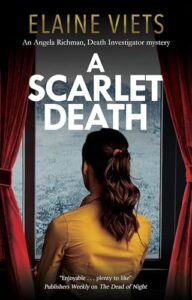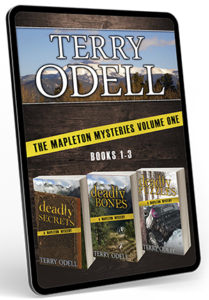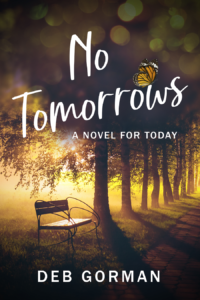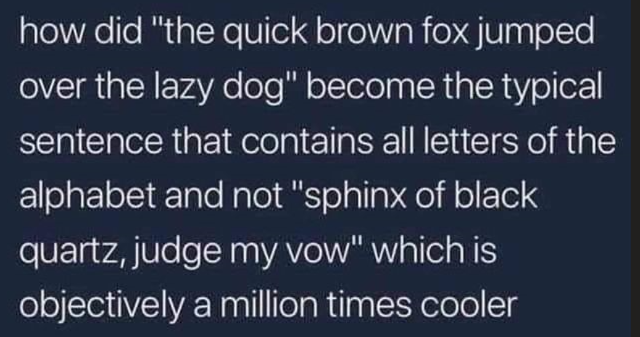
Val d’Orcia in Tuscany, where the homecoming scene in “Gladiator” was filmed
By PJ Parrish
Buongiorno, cani del crimine!
Okay, fair warning. This post is going to be full of digressions. Because I am of a wandering mood today.
As you read this, I am probably having dinner somewhere in Tuscany. Am writing this ahead of departure, however, so I don’t have a clue where I will actually be. I travel with my husband Daniel, my best friend Linda and another old-friend-couple Roon and Athena. We’ve had great luck traveling together so we’re off again – The Traveling Wilburys.
First digression: Most of you have probably heard of the real Traveling Wilburys. They were a super-group composed of George Harrison, Bob Dylan, Tom Petty, Jeff Lynne and Roy Orbison. You had to be special to be a Wilbury. Not everyone had the creds and soul to be a Wilbury.
On a Sirius XM Tom Petty channel, Petty talked about how they used to sit around and muse about who could be a Wilbury and who could not. Jack Nicholson = Wilbury. Richard Dreyfuss = great actor but never a Wilbury.
This is how we feel about our little travel group. You have to have the right stuff. Our Wilburys like the countryside, not big cities. We seek out eateries discovered on the wing, not Michelin-mandated must-tries. We love to sit in cafes and watch the world go by, not face the selfie-hoards around the Mona Lisa. I am convinced conflicting travel vibes is behind the failure of many marriages.
But I digress.
I have been trying to learn some Italian before this trip. I do it because I think it’s necessary to have good manners as a visitor and because I found it so darn frustrating on my first trip to France in 1985 that I couldn’t talk to folks.
After much agony and decades, I can speak enough French to get by. As David Sedaris wrote of his own sad attempts to learn French: Me talk pretty one day. From his essay of the same name:
Learning French is a lot like joining a gang in that it involves a long and intensive period of hazing. And it wasn’t just my teacher; the entire population seemed to be in on it. Following brutal encounters with my local butcher and the concierge of my building, I’d head off to class, where the teacher would hold my corrected paperwork high above her head, shouting, “Here’s proof that David is an ignorant and uninspired ensigiejsokhjx.”
My only comfort was the knowledge that I was not alone. Huddled in the smoky hallways and making the most of our pathetic French, my fellow students and I engaged in the sort of conversation commonly overheard in refugee camps.
“Sometimes me cry alone at night.” “That is common for me also, but be more strong, you. Much work, and someday you talk pretty. People stop hate you soon. Maybe tomorrow, okay?”
But I digress.
Learning a new language isn’t just for the benefit of the foreigners you might meet. It’s good for you. Like at a cellular level.
Everyone’s brain is made up of neurons, and things called dendrites, which are the connections between neurons. This is what we call “grey matter.” Bilingual folks have more of these neurons and dendrites compared to the rest of us. This means that their grey matter is even greyer.
Bilingualism also has an impact your brain’s white matter. This is the system of nerve fibres which connect all four lobes of the brain. This system coordinates communication between the different brain regions. This helps you learn new stuff. Bilinguals have a lot of white stuff.
Yeah, but it’s hard, darn it. Kids, well, they tend to pick up languages pretty easily. We old farts really struggle. But it’s worth it. Just the process of trying to learn Italian gives my brain a workout and protects me from dementia. So I can say with great confidence that after six months suffering through Babbel Italian, I can now say “Where are the car keys?” (Dove sono le chiavi della macchina?). But I still have trouble finding my car in the lot at Home Depot.
Scientific studies have shown that learning a language also helps you stay awake. Just one week studying a new language helps students’ levels of alertness and focus. This improvement was maintained with continuous language study of at least five hours a week. And get this: Improvement in attention span was noted across all age groups up to 80. This gives me great hope because napping is my new hobby.
But I digress.
Okay, so learning Italian is good for:
- Polite manners
- Finding a bathroom in Cortona
- Helping your memory
- Keeping you awake
But what does all this have to do with writing novels? (And you thought I didn’t have a point today). Well, turns out that according to studies, learning a foreign language helps you communicate better in your native language. It also boosts your powers of empathy. And maybe the best benefit: It increases your ability to see things from a different perspective. To put it another way, foreign language study:
- Enhances your command of English
- Makes you understand human nature
- Allows you to walk in another person’s shoes. Madame Bovary, c’est moi.
Don’t we novelists need all three of those in spades?
In trying to learn French, I had to respect the structure of the language (if you put an adjective in the wrong place, it can change its meaning completely). I had to learn the nuances of the accent and subjunctive tense (One neglected subjunctive and a kiss is not a kiss, it’s a shag). In trying to learn Italian, the biggest lesson I learned was that sometimes you just have to go with the flow.
Italian is a very quirky language. I’m a tad anal and I drove myself crazy trying to analyze the whys behind it. I was always looking for the theory and sense behind its structure. I finally gave up and just tried to speak. I hear that the Italians are a very forgiving people.
I love idioms and my favorite in Italian so far is this one:
Non tutte le ciambelle riescono col buco.
This translates literally as “not all donuts come out with holes.” It means, roughly, that things aren’t going according to plan but, hey, don’t sweat it. Que sera. It’s a verbal shrug. Which is pretty good advice in any language for any situation, right?
But I digress.
A presto, amici!


 Becca Puglisi is an international speaker, writing coach, and bestselling author of The Emotion Thesaurus and other resources for writers. Her books have sold over 1 million copies and are available in multiple languages, are sourced by US universities, and are used by novelists, screenwriters, editors, and psychologists around the world. She is passionate about learning and sharing her knowledge with others through her
Becca Puglisi is an international speaker, writing coach, and bestselling author of The Emotion Thesaurus and other resources for writers. Her books have sold over 1 million copies and are available in multiple languages, are sourced by US universities, and are used by novelists, screenwriters, editors, and psychologists around the world. She is passionate about learning and sharing her knowledge with others through her 







 Meanwhile, in other news, as an antidote to “hitting the wall”, I put together a bundle of the first 3 books in my Mapleton Mystery series: Deadly Secrets, Deadly Bones, and Deadly Puzzles. It went on sale Monday. You can
Meanwhile, in other news, as an antidote to “hitting the wall”, I put together a bundle of the first 3 books in my Mapleton Mystery series: Deadly Secrets, Deadly Bones, and Deadly Puzzles. It went on sale Monday. You can 
 Go on a global search-and-destroy mission for the following words/phrases:
Go on a global search-and-destroy mission for the following words/phrases:












